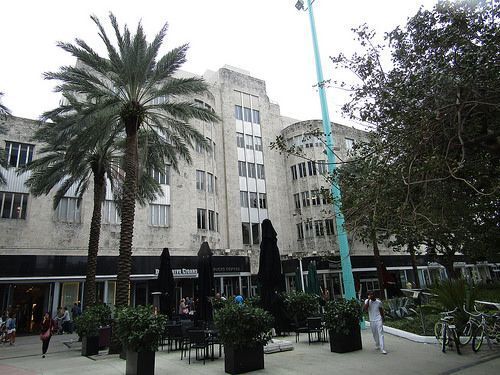Abstract:
An Introduction to Pluralism in Economics Lecture Series in the Winter Term of 2019/20
Debates about economic theory are omnipresent. There is increasing doubt if complex economic relationships can be modelled precisely enough through rationality-based mathematical models. Dynamic equilibrium theory and prognoses have often been deficient to anticipate crises and upheavals in reality. This criticism is mostly brought forward by so called heterodox or pluralist economists, who have gained popularity and momentum in recent years. Even in public discourse, questions about a new economic order have become more present. Nonetheless, the progress made in research and the debates amongst scholars are not taught to undergraduate students of economics.
It is often said that new students firstly need to learn the basics before they can participate in controversial discussions. Lectures presenting different schools of thought, the history and emergence of economic thought and heterodox perspectives are mostly postponed to graduate studies - or not taught at all. The lectures series by Rethinking Economics Tübingen wants to change this fact and start teaching a broad understanding of economics. What are the beginnings of the discipline and how did it depart from other social sciences? What can a philosophy of economics contribute to contemporary debates in the field? How many schools of thoughts do exist and what are their theoretical underpinnings? Are economic models the only way to do research for economists? We want to show that studying economics can be much more than integral functions, time series and indifference curves and furthermore give a prospect to what economics courses can be: controversial, interdisciplinary, multi-perspective, diversified and in tune with the latest economic developments.
https://timms.uni-tuebingen.de/tp/UT_20200203_001_rethinkeco_0001
Borrowing from Martha-Helen at Reddit:
Yanis starts by talking about why economics is not a natural science but a form of philosophy, giving reasons for why economics as an academic discipline needs pluralism. From there, he recalls the history of capitalism, why markets and capitalism do not go together very well (certainly in the long run) and ends his speech on what a market socialist economy could roughly look like, putting special emphasis on co-operative enterprises and a Universal Basic Dividend distributed from a social wealth fund.
A Before Times (February 3, 2020) event, just released on Youtube.
https://www.youtube.com/watch?v=9aK4OztueuE (1h30m) Intro runs 6:45 and may be skipped. Q&A @ 1:13:00.
As befits a discussion of pluralism in economics, wide ranging covering numerouus themes.
Varoufakis begins noting a key difference between physical and social sciences: "in physics, the phenomenon does not give a damn about our models ... whereas within social sciences, whether it's sociology, economics, whatever, the phenomenon really cares about our theories of the phenomenon". As I've been saying, social science's models are endogenous to the subject, in physical sciences models are exogenous.
Another item that crystalised for me was Varoufakis’s discussion of “networked companies” — rail, telegraph, telephone, broadcast, retail, middlemen, and the like. I’ve been realising for some years that all examples of monopoly (monopsony, oligopoly/oligopsony, etc.) I can think of are characterisable as networks. Seems I’m in good company.
Here’s a September 2020 article by Varoufakis that addresses the networked companies bit very close to what’s in the lecture:
Electromagnetism gave rise to the first networked companies, producing everything from power generation stations and the electricity grid to light bulbs for every room. These companies’ gargantuan funding needs begat the megabank, along with a remarkable capacity to create money out of thin air.
The agglomeration of megafirms and megabanks created a technostructure that usurped markets, democratic institutions, and the mass media, leading first to the Roaring Twenties, and then to the crash of 1929.
To re-float the financial system, central banks channelled waves of cheap liquidity to the financial sector, in exchange for universal fiscal austerity that limited spending by lower- and middle-income households.
Unable to profit from austerity-hit consumers, investors became dependent on central banks’ constant liquidity injections — an addiction with serious side effects for capitalism itself.
Consider the following chain reaction: The European Central Bank extends new liquidity to Deutsche Bank at almost zero interest. To profit from it, Deutsche Bank must lend it on, though not to the “little people” whose diminished circumstances have weakened their repayment ability.
Yanis Varoufakis, "This is how coronavirus exposed Capitalism"
https://gulfnews.com/opinion/op-eds/this-is-how-coronavirus-exposed-capitalism-1.73603500
Somewhat similar, see my own "Propaganda, censorship, and surveillance are all attributes of monopoly" (discusing communications monopolies), and earlier in Tim Bray: "You [the tech sector] might be evil":
Bray, presently at Amazon, previously with Google, Sun, and DEC, mentions the M-word: monopoly. He does not make the leap I've traversed in the past year or so of recognising that monopoly, rentierism, networks, and power, all appear inextricably linked. That is: networks (physical or logical) are monopolies, and provide economic rents, through the mechanism of power and manipulation.
DEiM25 is the Democracy in Europe Movement 2025, founded by Varoufakis.
#YanisVaroufakis #Varoufakis #DiEM25 #lecture #SocialScience #economics #RethinkingEconomics #Pluralism #monopoly #networks #NetworkedCompanies #power #money #banking #pluralism #UniversityofTubingen #Tubingen
h/t @Sylvia J here




